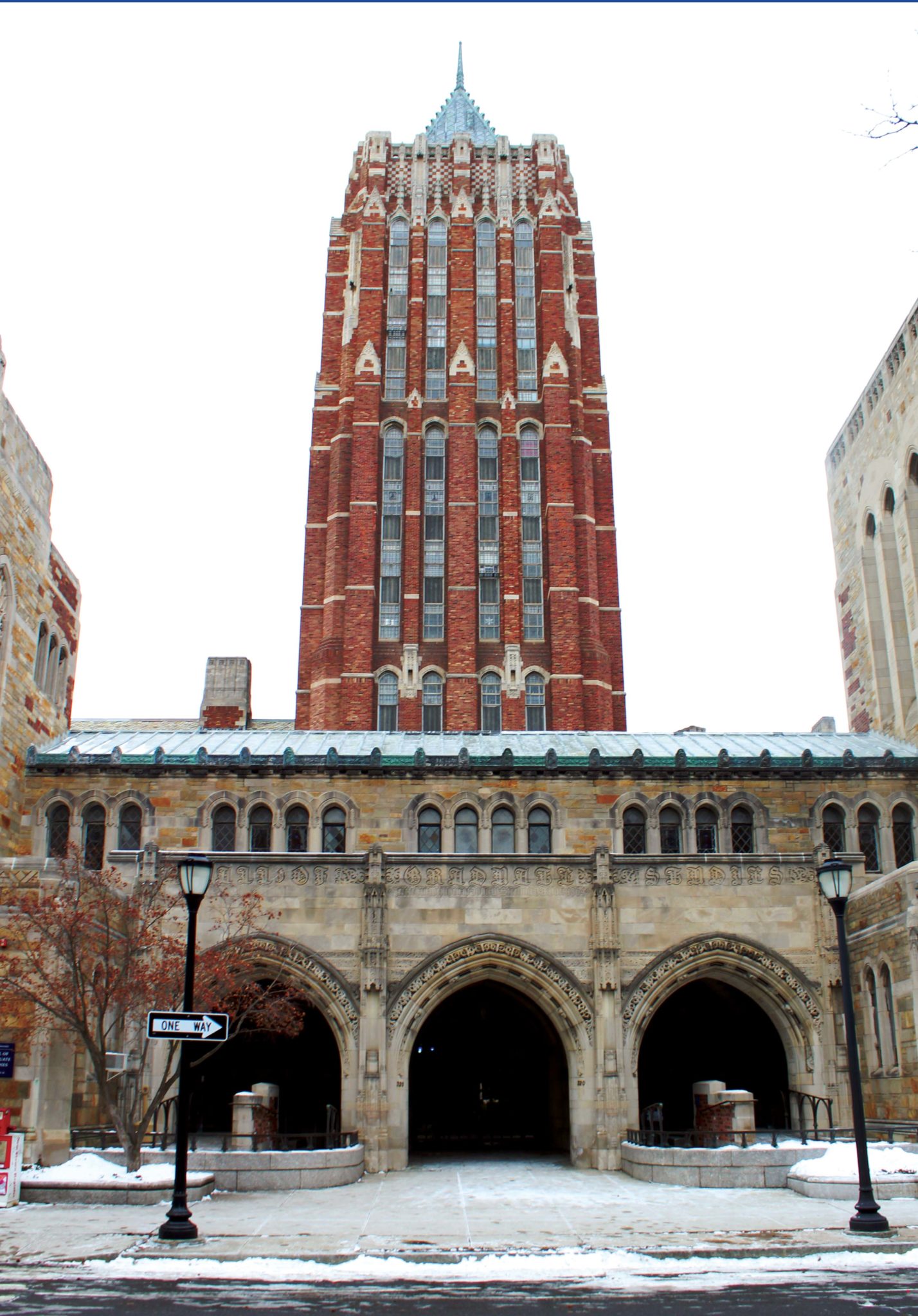
Early in the morning on May 8, 2018, Lolade Siyonbola GRD ’19 was taking a nap in a twelfth floor Hall of Graduate Studies common room adjacent to Sarah Braasch’s GRD ’20 dorm –– amidst her computer, books, notebooks, blanket and pillow –– when Braasch called the Yale Police Department’s non-emergency line about an unknown figure sleeping in the room.
YPD officers arrived around 1:45 a.m. and began to investigate Siyonbola’s status as a Yale student. This process, which involved looking at her student ID and verifying her name in YPD’s database, took longer than usual because of differences between Siyonbola’s preferred and official names, according to Yale Police Chief Ronnell Higgins. After verifying Siyanbola’s status as a student and speaking with Braasch, the police officers departed HGS at around 2:34 a.m. Siyonbola livestreamed two videos of the incident on Facebook –– one of her interactions with Braasch, and another of her interactions with YPD –– bringing the issue to national attention. Within two days, the videos had over 1.2 million views and 19,000 comments.
“I deserve to be here; I paid tuition like everybody else; I am not going to justify my existence here,” Siyonbola told one of the police officers on video after she was asked to “sit tight” while they verified her student information. “I am not going to be harassed.”
According to Higgins, the police officers told Braasch that her complaint was not a police matter and that they would report the incident to Graduate School of Arts and Sciences Dean Lynn Cooley. Two months prior, in March 2018, Braasch had called YPD to investigate a “suspicious character” in HGS: black graduate student Jean-Louis Reneson GRD ’19.
The University sent an email to graduate and professional school students on May 9 describing the napping incident as “deeply troubling” and reaffirming Yale’s commitment to addressing incidents of “racial bias, discrimination and harassment.”
Braasch denies any wrongdoing and rejects the notion that the incident was racially motivated in any way. She has repeatedly commented that the allegation runs contrary to her lifelong civil rights and humanitarian career.
University President Peter Salovey sent the Yale community an email of his own the next day, maintaining Yale’s commitment to equity and inclusion on our campus. He wrote that he met with multiple University leaders to address the challenges Yale faces in ensuring an inclusive environment on campus.
“Universities are not utopias, and people of color experience racism on our campus as they do elsewhere in our country. This fact angers and disappoints me,” Salovey wrote. “Each of us has the power to fight against prejudice and fear. I hope you will join me in doing so.”
The University held multiple listening sessions, open to members of the Yale community, to figure out how to move forward. Many alumni criticized these sessions, saying they were useless without additional action.
Within two weeks of the incident, over 3,000 people signed a petition demanding Braasch’s removal from Yale.
“We call on Yale’s President Peter Salovey, Dean Cooley of Yale’s Graduate School of Arts & Science and Yale University Secretary and Vice President for Student Life Goff-Crews, to remove Braasch from Yale because her stated philosophy is one that violates the moral and intellectual codes of the university; because her multiple counts of harassment and racism against other students violates the safety of students of color,” read the petition. “Students of color at Yale should not be re-traumatized by seeing Braasch on campus this fall.”
While Braasch was not expelled from Yale, the University did implement changes to its policies. Dean Cooley outlined five other changes in an email to graduate students, including implicit-bias awareness training for all GSAS staff workers, an implicit-bias awareness training session for all incoming graduate students and community-building sessions in graduate student dorms.
The University also brought on Vice President for the Office of Institutional Equity at Duke University Benjamin D. Reese Jr. to conduct an external review of Yale’s policies regarding racial discrimination and harassment. His report was released in the spring of 2019.
“I endorse the main findings of the report and have decided to adopt its key recommendations,” Salovey said in a University-wide email on April 10, 2019.
These changes included renaming and expanding the Office for Equal Opportunities and Programs, and hiring a new deputy secretary to implement diversity initiatives throughout the University.
Last year, Braasch filed a Freedom of Information Act request to obtain Yale Police Department officers’ body camera footage of her from the incident. In November 2019, Braasch and Higgens and their respective legal representatives spoke at a hearing before Connecticut’s Freedom of Information Commission in Hartford.
YPD argued against releasing the footage, saying it is exempt from the Freedom of Information Act because the footage contains uncorroborated allegations that could lead to defamation if released. Braasch said she believes the footage will help redeem her reputation. If she wins, she said she intends to release the footage to the public to show her side of what happened.
“I want the public to see that Yale lied about me to cover up their wrongdoing, and that they destroyed an innocent person,” Braasch said.
FOI Commission counsel Danielle McGee and her committee have until July 2020 to make a decision on Braasch’s FOIA request.
Julia Brown | julia.brown@yale.edu






